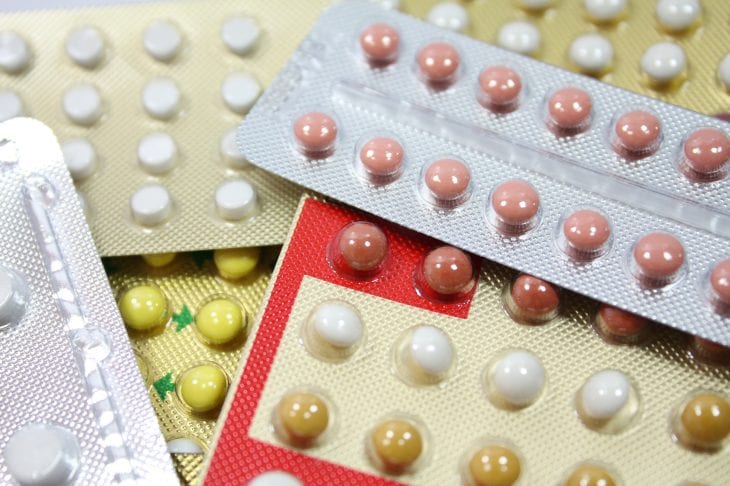According to a recent study by the Guttmacher Institute, young women underestimate their ability to get pregnant, while women in their 30s and 40s overestimate, and continue to wait. Whichever side of the fertility divide you fall on, there way too many myths floating around that have nothing to do with age. Here are 10 of the more inscrutable ones …
Contents
- Myth 1: Daily Sex Ups Your Chances
- Myth 2: Going into Headstand Will Help Sperm Find Their Way
- Myth 3: You Can’t Get Pregnant During Your Period
- Myth 4: Having an Orgasm Will Seal the Deal
- Myth 5: Caffeine Inhibits Your Pregnancy Odds
- Myth 6: Alcohol Boosts Your Chance of Pregnancy
- Myth 7: Swallowing Semen Will Make You More Fertile
- Myth 8: Eating Yams Will Lead to Multiples
- Myth 9: Being on the Pill Can Have Lasting Effects
- Myth 10: It’s All in Your Head
Myth 1: Daily Sex Ups Your Chances

Source: Pinterest
Having sex every day, or every other day, will not increase your chances of conception, despite what your man would have you believe. (“Let’s make a baby” is my husband’s new, favorite come-on.) To up your chances, you should actually aim to have sex during the time in which you’re ovulating — generally the 11thto 17th day of your menstrual cycle. How do you know when you’re ovulating? If your cycle is fairly regular, you can download a menstrual calendar app to your smartphone, you can order a (pricey) ovulation kit, or for free, you can keep an eye out for the physical signs of ovulation. [WomensHealth.gov]
Myth 2: Going into Headstand Will Help Sperm Find Their Way

Source: Yoga Journal
I hate to admit this, but I’ve become so desperate to get pregnant, I actually go into shoulderstand after sex in the hopes that more of my man’s tiny swimmers will reach the finish line. Intellectually, I know this is ridiculous. After all, sperm cells are chemically programmed to travel in the right direction, no matter where your pelvis is pointing. And even if some sperm leak out post-sex, there are plenty more still in the game. Still, after two years of trying, I feel that every little bit helps. It doesn’t. [The Scientist]
Myth 3: You Can’t Get Pregnant During Your Period

Source: Pinterest
While ovulation typically doesn’t occur until after you’re done menstruating, there’s still some chance of getting pregnant while riding the crimson wave. How? Because sperm can survive for up to five or six days, there may be some holdouts waiting for their chance at infamy when you finally start ovulating. If you’re eager to start a family, feel free to cross that thin red line without defensive armor. If you’re not ready to be called “mama,” take the proper precautions. [just mommies]
Myth 4: Having an Orgasm Will Seal the Deal

Source: The Trent
If you’ve been trying to get pregnant for a while, babymaking sex has likely crossed the line from sexy into awkward. Especially if you’ve been keeping a menstrual calendar, in which case your scheduled sex probably also feels contrived. Because of this, actually experiencing an orgasm during the act is definitely a plus (or perhaps even a miracle). Still, though the contraction of the uterus that occurs during orgasm does help sperm travel more quickly toward the fallopian tubes, your big O does not seal the deal. Once that sperm hit the f-tubes, the rest is up to them. [Slate]
Myth 5: Caffeine Inhibits Your Pregnancy Odds

Source: Medical News Today
Man. If this were the case, I’d be so screwed. Though I tried to cut back on caffeine when I first started trying, I’m now back up to two cups of regular in the morning and two cups of decaf in the afternoon. Luckily, excessive caffeine intake has only been proven to have an adverse effect on fertility with those who have experienced prior fertility issues. As fertility expert Bill Ledger said, “A lot of women can have 20 cups of coffee a day and get pregnant while falling off a log.” The lesson, as always, is to indulge in moderation. [BBC News]
Myth 6: Alcohol Boosts Your Chance of Pregnancy

Source: Diet Doctor
What the what!? Okay. I’ll give you this: Getting a nice buzz on can loosen your inhibitions which, in turn, can lead to greater amounts of crazy hot sex. And greater amounts of crazy hot sex (edit: during ovulation!) can, indeed, lead to more baby-having. But excessive alcohol consumption has actually been shown to decrease fertility in women, because it affects the body’s ability to absorb zinc, a vital nutrient for healthy sperm. Which is not to say you should abstain completely. Hell, nine months is long enough. Just take it easy, and avoid drinking to dancing-on-the-bar levels. [British Medical Journal]
Myth 7: Swallowing Semen Will Make You More Fertile

Source: Hello Doktor
Last year, a study showed that semen is actually an antidepressant. Not only that, but a man’s ejaculate also contains proteins and other nutrients. Well hallelujah! Let’s toss the bottles of Xanax and the Weight Watchers pamphlets! Still, his man-seed does have its limitations. To date, there has been no study that shows swallowing semen has any effect on your ability to get pregnant. So give those bjs because you like to give pleasure. But don’t assume you’re receiving anything back aside from good vibes. [Psychology Today]
Myth 8: Eating Yams Will Lead to Multiples

Source: SNAP-Ed Connection – USDA
Well … they might. But that has yet to be proven. Back in 2001, researchers struggled to figure out why those living in the African village of Igbo-Ora had such a high rate of twin births. The only cultural difference they observed was that residents had a thing for yams. This correlation, however, is still considered suspect. Either way, yams are good for you, and good health can contribute to higher levels of fertility. So if you want to up your chances … I’ll continue doing my shoulderstands, and you can start bingeing on yams. [BBC]
Myth 9: Being on the Pill Can Have Lasting Effects

Source: University of Washington
Personally, this sounds like a silly falsehood perpetuated by those who oppose the use of contraception. In reality, those who toss their birth control pills only have to wait a few weeks before they start ovulating again. And the same is true for other forms of birth control. Though the recovery time varies depending upon your previous method of birth control, it doesn’t vary by much. In fact, studies show that within one year after stopping the Pill, 80 percent of women who tried to get pregnant succeeded. [The Bump]
Myth 10: It’s All in Your Head

Source: Pinterest
When I confided in an acquaintance that my husband and I were trying to have a baby, he smiled smugly (at least it seemed so to me), and said, “There is no try. There’s only making love.” As someone struggling with infertility, it was infuriating and insulting to be told that the problem was psychological, and that I should just relax. Especially considering how relaxed I was when we first started trying. Infertility is an actual medical condition of the reproductive system. Stress can result from struggles with infertility … not cause it. Hopefully, learning the truth about some of these fertility myths will just make the process easier. [Wexner Medical Center]
Original by Steph Auteri
